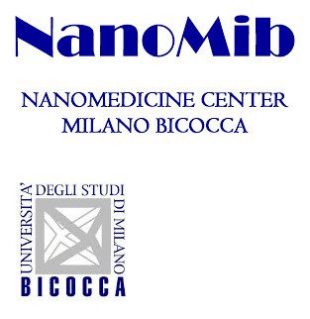A below is a brief list of the main projects coordinated by UNIMIB that are directly related to nanomedicine:
BASIC RESEARCH
This program aims to combine innovative chemical and physical strategies to develop new nanostructured materials for biomedical applications, characterized by high biocompatibility/biomimicry, highly specific targeting, relative ease of preparation, and low production costs.
- Design and synthesis of nanoparticles (NPs)
- Characterization (physicochemical, biological)
- Nanomechanics of biological macromolecules and supramolecular aggregates
- Innovative strategies for the synthesis and functionalization of nano – and microparticles for biomedical applications
NANOMEDICINE FOR CANCER THERAPY
- Development of advanced nanomedicines for cancer treatment
- Screening of anticancer chemotherapeutic drugs via nanoscale techniques
- Nanotechnologies for the treatment of glioblastoma
NANOMEDICINE FOR BRAIN DISEASES
- Nanotechnologies for diagnosis and treatment of neurodegenerative diseases (e.g., Alzheimer’s Disease and Parkinson’s Disease)
- Nanotechnologies to pass through the blood-brain barrier (BBB)
TOXICOLOGY OF NANOPARTICLES FOR MEDICAL USE
This project aims to address, through a comprehensive and coordinated approach, the impact of nanoparticles, including nanomaterials released into the environment, on human health.
- Evaluation of the biosafety of nanoparticulate materials using in vitro and in vivo models
- 3D optical sectioning of thick tissues for in vivo studies
NANOTECHNOLOGY IN DIAGNOSTICS
This project aims to design particles that meet several criteria, including high resolution, detection accuracy and sensitivity, prolonged circulation time, and target selectivity.
- Novel hybrid magnetic nanoparticles as MRI contrast agents
NANOTECHNOLOGIES IN REGENERATIVE MEDICINE
- Design of materials for generating extracellular scaffolds and mimicking human tissues
- Organ-on-chip and 3D printing
COMPUTATIONAL NANOMEDICINE
- Design of novel bioinorganic nanoconjugates for improved drug delivery, targeting, imaging, and cancer therapy
- Multiscale modeling and dynamic simulation of nanosystems in biological environments or across biomembrane models
